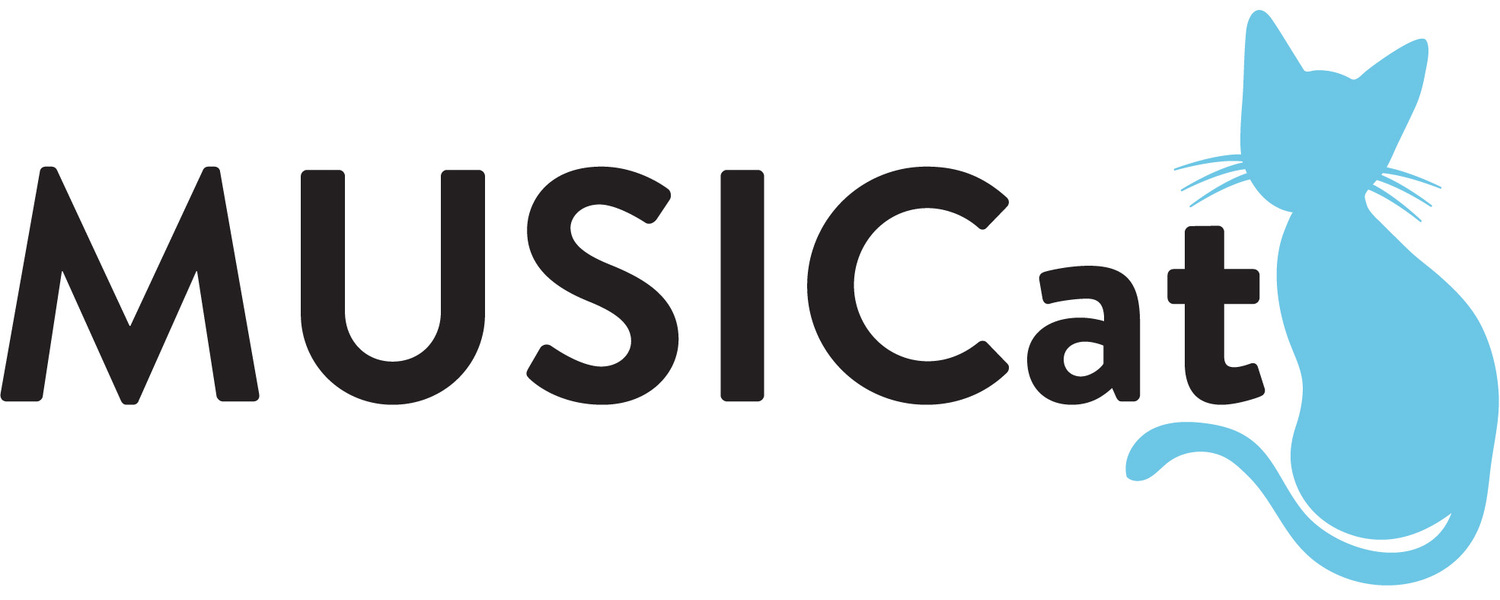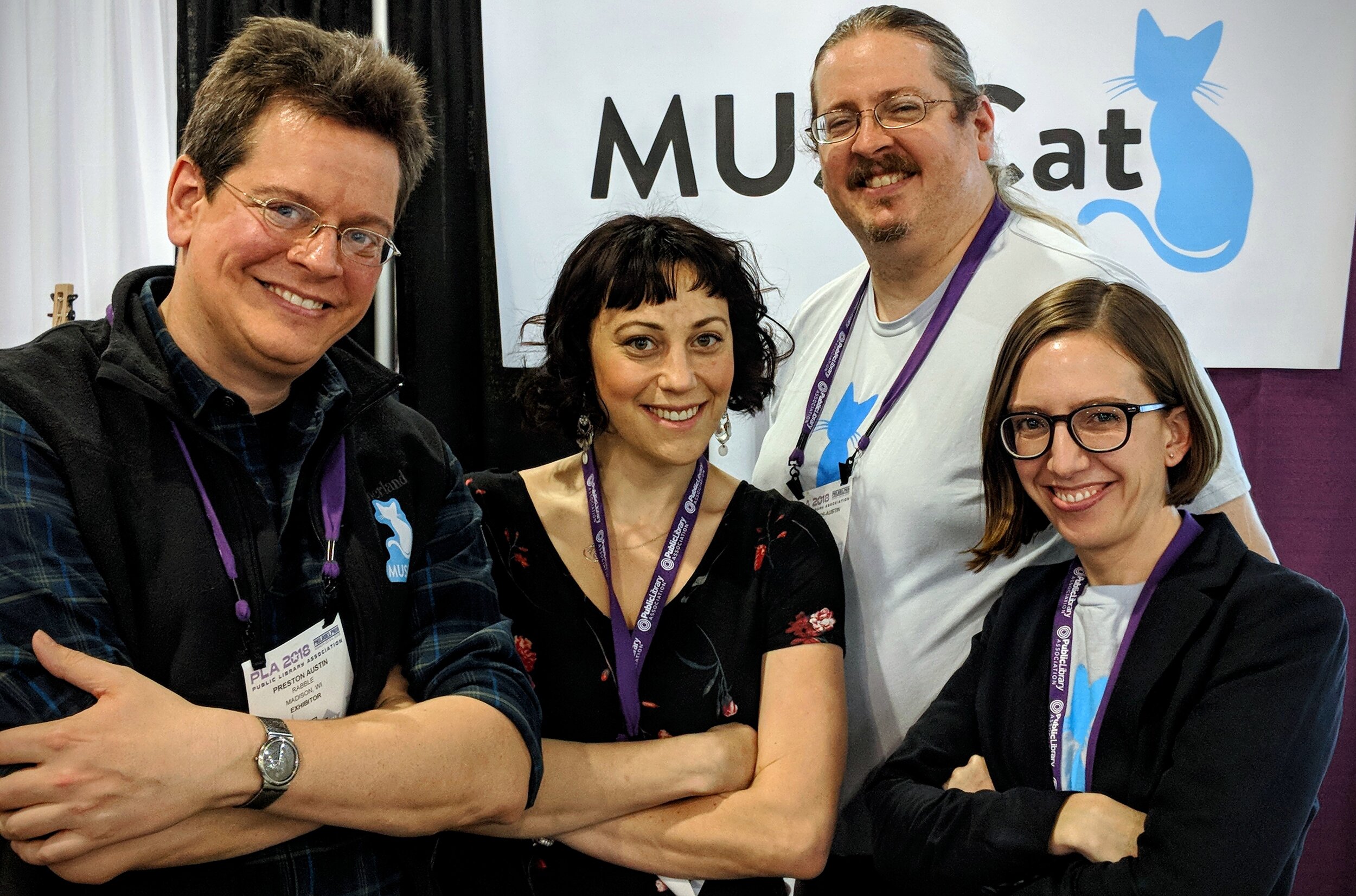This fall, Rabble and the open source MUSICat platform turn five years old. That's five years of working with public libraries to build community-driven music collections, five years of hard work, and five years of great music.
When we founded Rabble, we didn't quite know what we were getting ourselves into. We knew we wanted to expand the way libraries could work with their communities, and build top notch software with them to do so. But we weren't fully prepared for the challenges - and rewards - that came with the work.
Now that we're all grown up (five!) and wise (we hope!), we want to take a minute to reflect on the struggles we've faced and the things we've accomplished together with our library partners.
The proto MUSICat team that built Yahara Music Library with the Madison Public Library. Photo by Carolyn Fath, Isthmus
From the start, we committed Rabble to a few core values:
Libraries deserve outstanding software that reflects their values.
Artists (and everyone else) should be clearly and fairly paid for their work.
Realizing these values meant working closely with librarians - not just building the software and systems we thought were best for them and their communities.
We also made a decision not to pursue investor funding. Instead, we dedicated ourselves to growing Rabble and MUSICat organically. This decision allowed us to focus solely on the needs of our library partners, and granted us the time we needed to get it right.
The Rabble team with Raquel Mann, Edmonton Public Library, at PLA 2018
As you might guess, building a business on an open-source platform in the public library market with a revolutionary publishing model—and only the funding we earned directly—is not exactly easy. We've faced all kinds of challenges and setbacks.
Public librarians often joke about how slowly their field and institutions can be to adopt new models and tools, and we discovered that this is true, not because librarians themselves aren't innovate or eager for change—they are. But bold, complex projects like MUSICat collections take time to get off the ground, and as a new vendor working in an emerging space, we often have to clear multiple bureaucratic hurdles. It's taken every bit of our five years to grow a set of library partners for MUSICat big enough to support the Rabble team's labor.
We've faced technical challenges too, as we scaled MUSICat at both the micro and macro levels. We simultaneously expanded functionality to enable new efforts and opportunities in individual cities and towns, while continuously reducing the cost, complexity, and limits of MUSICat's software. We knew we had to punch well above our weight to succeed, and do it while adhering to library values. We did both, regularly deploying new tools to support everything from video collections to historical showcases, while becoming ever more nimble at spinning up new MUSICat collections and remaining highly responsive to our library partners.
Marc Brakken, former Rabble Technical Lead, with Riversides, the first vinyl album produced by a public library, a project that grew out of Edmonton Public Library’s MUSICat collection Capital City Records.
We've weathered these storms, though, and accomplished big things.
We work with some of the leading lights in the library world, including public library systems in Edmonton, Seattle, Minneapolis (Hennepin County), Portland (Multnomah County), Austin, Pittsburgh, and Madison (a full list of our partners is here).
While we're far from perfect, we're proud that we've stayed true to our core values, and we're grateful to our library partners for the guidance they've provided along the way.
Our most important accomplishment, though, is the support we've helped build for working artists. As of today (October 29, 2019), libraries in a dozen cities have paid hundreds of working artists over a quarter million dollars in licensing fees to share their work in MUSICat collections. That number is going to start growing quickly in 2020 and beyond, as the number of MUSICat collections will increase by forty percent over the next six months. Rabble is also releasing a native iPhone MUSICat Player in 2020.
Jason Rabb, Salt Lake City Public Library, HUM. Photo by Enrique Limón, Salt Lake City Weekly.
Beyond the exciting new MUSICat collections and mobile experience we're working on, we're also making organizational changes and starting initiatives that make Rabble and MUSICat sustainable as a going concern for years to come. Stay tuned for more news in the coming weeks.
We believe the future of digital public spaces is bright. We're especially heartened by trends in the library field as leaders call into question and fight back against harmful, extractive digital publishing practices. We believe that community-driven collections will play a critical role in a more just and equitable digital lending ecosystem, and we're ready to do our part.
We have big ideas about how to work with libraries and communities to shape the future of digital public spaces and creativity online. Together, we've accomplished great things already, and we can do so much more. We hope you'll join us.





